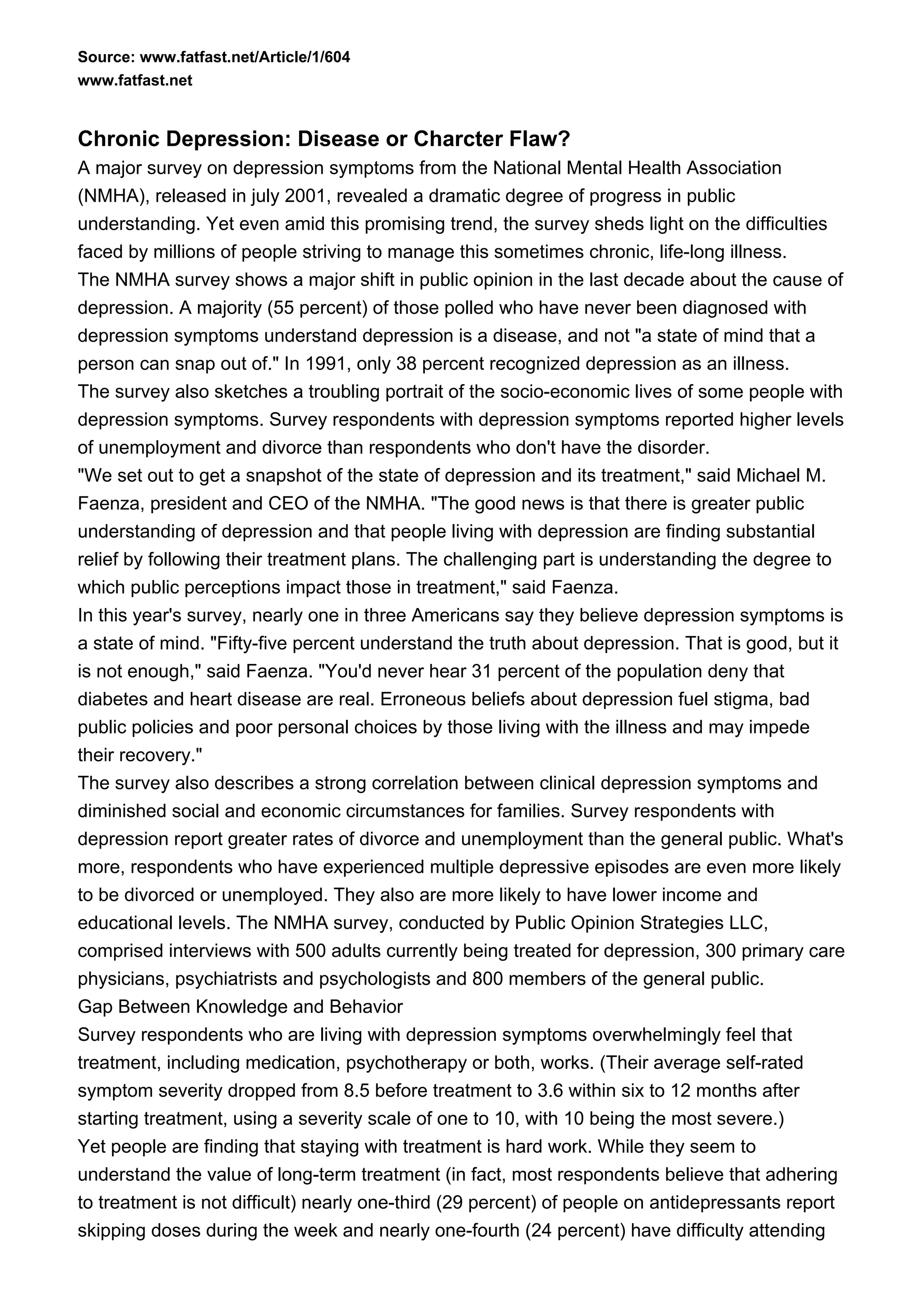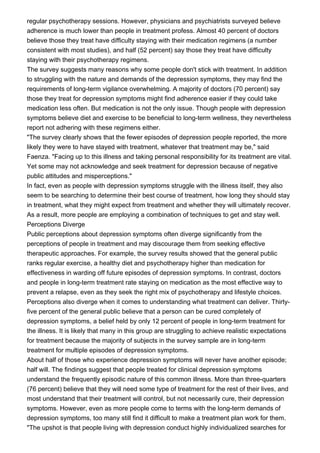1) A survey by the National Mental Health Association found that over half of Americans now recognize depression as a disease rather than a character flaw, though nearly a third still view it as a state of mind.
2) The survey also found that those with depression reported higher rates of unemployment and divorce than others.
3) While treatment is seen as effective, many people struggle to adhere to medication and psychotherapy regimens long-term. There is a gap between understanding the need for ongoing treatment and actually following through with it.


